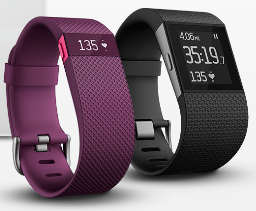eDiscovery Daily Blog
IoT Devices Lead to Suspect’s Arrest for Murder: eDiscovery Trends
Honestly, I don’t know why anyone would consider committing a violent crime these days. There’s the use of ever-improving DNA technology that leads to the arrest of scores of alleged offenders each year – even if you’re not in the Combined DNA Index System (CODIS) database, you can still be identified as a suspect through your relatives via genealogy databases, as we’ve recently seen in the case of the Golden State Killer. And, if your DNA doesn’t get you, an Internet of Things (IoT) device may, as evidenced in this case.
As reported by CNET (Murder victim’s Fitbit data leads to alleged killer’s arrest, written by Steven Musil), Karen Navarra’s Fitbit recorded a rapid rise in her heart rate before a sudden drop-off to nothing, offering San Jose police a clearer time frame of her death on Sept. 8, the San Francisco Chronicle reported Friday. 90-year-old Tony Aiello was arrested last month in connection with his 67-year-old stepdaughter’s death.
Investigators noticed Navarra was wearing a Fitbit and they turned to the company for any possible clues the device could provide. Police learned that Navarra’s heart rate spiked at 3:20 p.m. and stopped registering a heartbeat eight minutes later, the Chronicle reported.
Although Aiello has reportedly denied killing Navarra, nearby cameras captured images of Aiello’s car parked at Navarra’s home on Sept. 8 at the same time her Fitbit showed her heartbeat rapidly falling and stopping, the newspaper reported.
Of course, those “nearby cameras” could themselves be IoT devices (Ring doorbell, anybody?). And, we covered a different case last year regarding the Fitbit of a murder victim that helped disprove her husband’s story regarding an “intruder” that he said shot her to death – that evidence helped lead to his arrest for her murder. In another case covered on 48 Hours recently, a Wisconsin man’s Fitbit exonerated him of his girlfriend’s 2016 murder when it showed his movements during the time police say her body was dumped in a field. Needless to say, IoT devices are becoming more and more prominent in criminal investigations and discovery.
Changing gears here, Rob Robinson, through his terrific Complex Discovery site, is certainly the king of compilations and analysis regarding eDiscovery trends and his latest analysis involves “an aggregation of results from fourteen surveys from leading ALM magazines ranging from Corporate Counsel to Texas Lawyer administered to online audiences and published as special supplements between November 2017 and October 2018.” Rob took the sixteen eDiscovery-centric survey categories represented in the fourteen surveys and tracked all of the providers who received at least one vote as a top three provider (101 providers in all).
Twenty-five of those providers was voted a top three provider at least six times across the fourteen surveys and Rob has ranked them by the number of times they received a top three vote. So, which provider was voted a top three provider the most times by participants in the fourteen ALM surveys? Click here to find out. :o)
So, what do you think? Have you had a case that involved evidence from an IoT device? Please share any comments you might have or if you’d like to know more about a particular topic.

Sponsor: This blog is sponsored by CloudNine, which is a data and legal discovery technology company with proven expertise in simplifying and automating the discovery of data for audits, investigations, and litigation. Used by legal and business customers worldwide including more than 50 of the top 250 Am Law firms and many of the world’s leading corporations, CloudNine’s eDiscovery automation software and services help customers gain insight and intelligence on electronic data.
Disclaimer: The views represented herein are exclusively the views of the author, and do not necessarily represent the views held by CloudNine. eDiscovery Daily is made available by CloudNine solely for educational purposes to provide general information about general eDiscovery principles and not to provide specific legal advice applicable to any particular circumstance. eDiscovery Daily should not be used as a substitute for competent legal advice from a lawyer you have retained and who has agreed to represent you.

